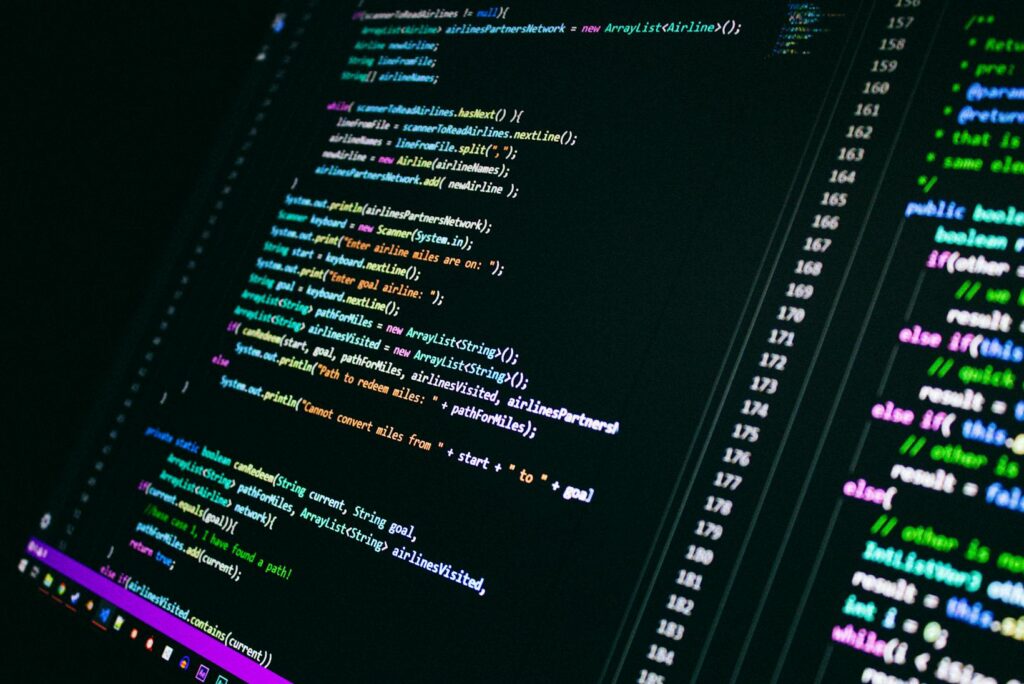In the digital age, terms like ‘coding’ and ‘programming’ are often thrown around interchangeably. But are they really the same? While both play crucial roles in the tech world, they’re not identical.
Coding is the process of creating codes from one language to another, it’s like learning how to write in a foreign language. On the other hand, programming is a broader concept. It’s not just about writing code but also involves problem-solving, designing algorithms, and understanding data structures.
What is The Difference Between Coding and Programming
Delving deeper into the intricate world of technology, this section provides a focused explanation of coding and programming.
What Is Coding?

Coding, at its core, is the process of writing code. It’s the primary step, converting logic and ideas into a language that a machine understands. Coders primarily translate the human thoughts into the syntax of a specific programming language such as Python, JavaScript, or Ruby. It’s comparable to a translator interpreting words from one human language to another, except, here, the conversion is from human logic to machine-readable instructions. As an example, consider someone writing code to build a simple HTML webpage. They’d be creating base level functions that tell the computer what to do directly.
What Is Programming?

Programming, on the other hand, encapsulates a larger gamut of tasks besides just writing code. It involves planning, analyzing, designing, and implementing algorithms while also testing and debugging code. It requires a comprehensive understanding of the chosen programming language, alongside data structures and algorithms. Going beyond the mere translation of logic into code, a programmer strategizes the problem-solving process. Given an example, a programmer tasked with building an app wouldn’t just write code. They’d need to comprehend the whole picture, architecting the app’s structure, identifying potential pitfalls, and strategizing how different components interact. In essence, if coding is about making the building blocks, programming is about knowing where and how to place those blocks for optimal results.
Key Differences Between Coding and Programming
In a quest to demystify tech lingo surrounding programming and coding, this section delves deeper into the core differences between the two. By unraveling the disparities in their scope, complexity, tools, and applications, we aim to give readers a clear perspective of these often-confused terms.
Scope and Complexity

Coding, usually considered as the initial step in software development, is essentially the creation of instructions for computers, implemented using a specific coding language like Python or JavaScript. Its scope generally restricts to writing basic functions and conversing human thoughts to machine code. On the flip side, programming is an umbrella term that broadens the scope beyond mere coding. A programmer not only writes code but deals with its integral aspects like analysis, design, testing, and debugging, making it inherently more complex. Programming requires a profound understanding of data structures and algorithms, translating to the development of more intricate architectures and optimized software solutions.
Tools and Applications

Another stark disparity between coding and programming lies in the tools and applications they involve. Coders mainly rely on text editors and integrated development environments (IDEs) like VS Code or Sublime Text to write and check their code snippets. Programs they write typically involve simple functions and tasks. Meanwhile, programmers employ a more sophisticated arsenal. In addition to IDEs, they harness version control systems like Git, Docker for virtualization, Jenkins for continuous integration, and automated testing tools. These help in creating, maintaining, and refining larger software applications that demand scalability, reliability, and efficiency. To put it differently, while coding focuses on basic task execution, programming targets the holistic management of software projects.
The Right Skills

Navigating the dynamic fields of coding and programming successfully hinges on the right blend of skills and education. It’s not just about writing code or understanding programming languages, but also about analytical thinking and problem-solving abilities. Communication skills are equally important, bridging the gap between technical know-how and effective teamwork. The pathways to acquiring these skills are varied, from traditional bachelor’s degrees to boot camps, online courses, and self-learning. This flexibility allows individuals to tailor their learning to their personal circumstances and goals. So whether you’re a budding coder or an aspiring programmer, remember it’s the broader skill set, coupled with the right educational background, that will set you apart in these exciting, ever-evolving fields.



